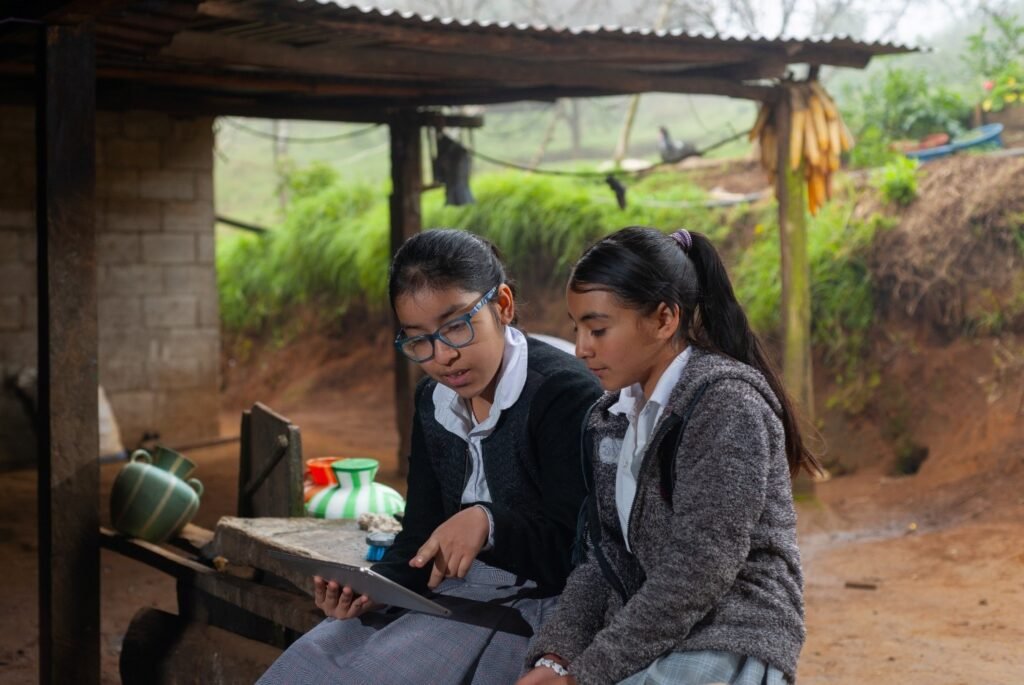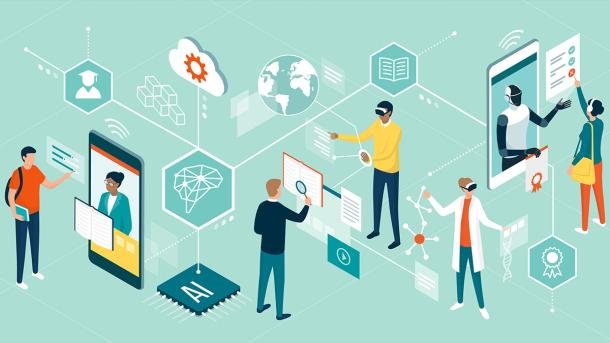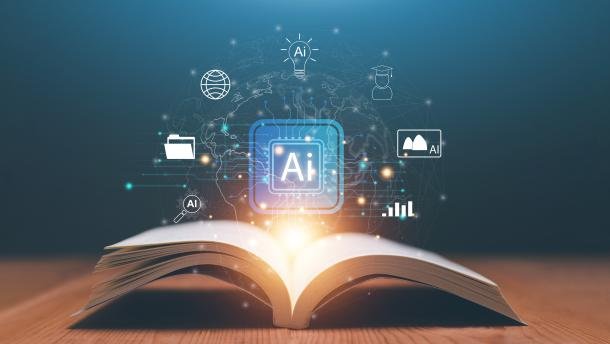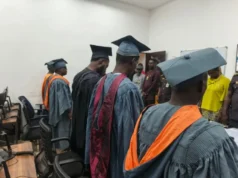In a rapidly shifting global landscape, education stands at the crossroads of transformation — and it’s no longer enough to simply plug in new tools. The agency of UNESCO highlights that when artificial intelligence (AI) permeates learning systems, it can be both a powerful force for change and a source of pressing concern.
At the heart of this transformation is the need to ask: what should schooling become when machines begin learning, adapting, and supporting human learners in more dynamic ways? Rather than waiting for a singular future to arrive, educational stakeholders — policymakers, teachers, learners, communities — must actively shape the new terrain. The UNESCO event at its Digital Learning Week 2025, themed ‘AI and the Future of Education: Disruptions, Dilemmas and Directions’, brought this home when ministers, researchers and practitioners gathered to believe not only in what AI could do for education but also in what education could do with artificial intelligence.
From Nigeria to Namibia, Bangladesh to Brazil, the same tension arises: will artificial intelligence increase divides and reproduce old inequalities, or will it open up fresh pathways for inclusive, human-centred learning?

Table of Contents
Major Shifts: Opportunity Meets Responsibility
The conversation about artificial intelligence in education is often framed in dichotomies — optimism and caution, promise and peril. UNESCO underscores that neither a rosy utopia nor a grim dystopia is helpful; what is required instead is grounded reflection grounded in evidence and real-world practice.
Here are some of the pivotal shifts emerging:
- Teachers remain central. The idea that machines will replace educators is misleading. While artificial intelligence can support teaching and enhance classroom experiences, it cannot replicate the empathy, creativity, judgment and relationships that define effective learning. Empowering teachers to develop digital literacy and agency is non-negotiable.
- Ethics, governance and the human dimension. As AI systems become part of the fabric of learning, questions about data privacy, algorithmic transparency, bias, and accountability become urgent. Building trust in these systems means designing for human values, not simply deploying technology for efficiency.
- Bridging divides. A major concern is the “digital and AI divides” that risk leaving behind students who lack infrastructure, connectivity, data access or relevant skills. Unless addressed, artificial intelligence could amplify existing inequities rather than remedy them.
- Context matters. Artificial intelligence and education cannot be one-size-fits-all. Locally developed, culturally-sensitive solutions that respect language, pedagogy and regional specificities are far more likely to succeed than externally imposed models.
In Nigeria and across Africa, where young populations are large and digital access uneven, these shifts matter more than ever. The promise of artificial intelligence must be matched by policies that ensure equity, localisation and empowerment.

What This Means for Nigeria — and for the Future of Learning
In the Nigerian context, the entry of artificial intelligence into education raises both hope and caution. On one hand, imagine AI-supported tutoring systems helping students in remote areas to access quality instruction, or platforms analysing learner progress to tailor support in under-resourced schools. On the other hand, consider the risks of widening gaps where connectivity, electricity or teacher training are weak.
Here are key implications to consider:
- Teacher development should be a priority. Rather than viewing artificial intelligence as a replacement for educators, we must invest in teacher training programmes that build confidence and competence in digital literacy, AI fluency, and adaptive pedagogy. A Nigerian teacher equipped for the AI era is one who can harness technology while preserving the human dimension of learning.
- Infrastructure and access cannot be an afterthought. The digital divide is very real: inconsistent power supply, limited broadband access and varied device penetration all inhibit equitable AI deployment. Policymakers, industry and education stakeholders must work together to fill these gaps.
- Curriculum must be future-facing. The knowledge and skills students need are shifting. Critical thinking, collaboration, adaptability, ethical reasoning and digital literacy are no longer optional — they are essential. Integrating these into curricula in ways that reflect local realities will matter.
- Local solutions over imported ones. Nigerian schools must guard against a “plug-and-play” mindset of AI tools designed elsewhere. Solutions that incorporate Nigerian languages, culturally-relevant content, regional pedagogy and community input will have stronger resonance and sustainability.
- Policy and governance frameworks. As UNESCO highlights, education systems cannot outsource governance of AI to tech firms. Regulatory oversight, public engagement, data protection and ethical standards need to be built in now — especially in regions where capacity is still developing.
The message is clear: the AI era holds promise for Nigeria, but realising that promise depends on deliberate action, thoughtful design and inclusive preparation.
Looking Ahead: Charting a Human-Centred Future for Education
What will education look like in five or ten years if artificial intelligence becomes embedded in our systems? What must we do now to steer that future toward fairness, agency and meaningful learning? Here are some forward-looking thoughts drawn from UNESCO’s work and adapted to the Nigerian vantage point:
- From adaptation to active shaping. Rather than reacting to AI trends, educational stakeholders must shape the agenda: what kinds of learning do we value? How do we integrate artificial intelligence without losing human agency? How do we ensure that technology serves learners, not the other way around?
- Assessment reconceived. Traditional tests may lose relevance in an AI-rich environment. Continuous feedback loops, adaptive assessments, authentic tasks and formative methods will likely become more common. These emphasise growth, not simply measuring recall.
- Ethical, inclusive design as standard. Artificial intelligence in education must be built with and for people. That means including learners, educators and communities in design processes; ensuring transparency in algorithms; protecting data; and guarding against bias and unintended consequences. Efforts to embed “ethics by design” will determine whether AI becomes oppressive or liberating.
- Global solidarity, local action. Education systems around the world are grappling with these changes. Yet the solutions must arise from local realities. Nigeria must engage with global dialogues while nurturing robust national strategies, aligning stakeholders and sharing practices regionally.
- Lifelong learning as a lifeline. In the face of rapid change, the ability to learn continuously becomes a survival skill. AI-powered systems can support lifelong learning – but only if they are accessible, relevant, and aligned with the human desire to grow, contribute and adapt.
- Imagining beyond efficiency. Perhaps the most radical shift is reframing education not simply as delivering content but as cultivating human dignity, agency and purpose. Artificial intelligence can support this, but cannot define it. It remains our responsibility to shape what learning means in a digitally-enabled world.

Conclusion
As Nigeria stands ready to leap into a future shaped by artificial intelligence, the question is not whether artificial intelligence will arrive in our schools — it already is. The more pressing question is: How will we steer this transformation so that learners flourish, teachers are empowered, local cultures honoured, and inequities reduced?
The UNESCO dialogue reminds us that technology does not neutralise power; it redistributes it. In the hands of some, artificial intelligence can extend opportunity; in the hands of others, it may reinforce exclusion. But Africa’s young generation, Nigeria’s vibrant classrooms and educators hungry for change hold enormous promise. With proper policy, infrastructure, cultural relevance and ethics-first approaches, AI can become part of the solution rather than the problem.
If we adopt a human-centred, locally grounded and globally coherent vision, then education in the AI era can become a force for justice, inclusion, creativity and hope. The path won’t be smooth; dilemmas abound. But the future of education is not a destination we wait for — it is one we build, together.
Join Our Social Media Channels:
WhatsApp: NaijaEyes
Facebook: NaijaEyes
Twitter: NaijaEyes
Instagram: NaijaEyes
TikTok: NaijaEyes
READ THE LATEST EDUCATION NEWS




